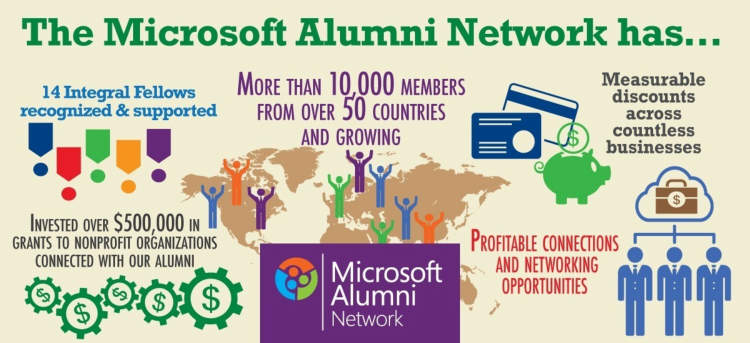Alumni from German Universities are some of the most established names in the education and research community. Their stories and influence dates all the way back to the late 1800s, when Germany’s universities were first founded. These days, alumni networks are made up of those who have either studied or worked at these universities, and their impact on innovation and the economy is huge.
In this article, we explore the diverse alumni networks found throughout German universities, and how they both shape and are shaped by the educational systems within them. From how they influence decision making to their impact on the research landscape, understanding the role of alumni networks can provide valuable insights on the modern German university system.
What Alumni Networks Exist in Germany?
Germany is a country that is known for its high-quality education and world-leading universities. With this reputation, it should come as no surprise that Germany is also home to some incredibly well-established alumni networks. Whether you’re an alumnus of a German university or just looking for a network to get you connected with German alumni, here’s a look at some of the most popular alumni networks in Germany.
The German National Alumni Association (GNA) is one of the oldest and largest alumni networks in Germany. Founded in 1954, it is dedicated to uniting alumni from all across Germany to strengthen the bonds of friendship and cooperation, as well as to provide opportunities to its members to stay connected with current developments at their alma maters. The GNA offers a variety of networking opportunities, such as alumni gatherings, seminars, and events, and also has an extensive database of German alumni.
The Federation of German Alumni Associations (FGA) is a non-governmental organization founded in 1975 and is dedicated to connecting alumni of German universities. It offers an opportunity to its members to network and participate in more than 20 national and international activities and events each year. The FGA also provides resources to support alumni with professional guidance, career development, and internship information. It also promotes networking and exchange between alumni associations within Germany and with foreign universities.
The German Exchange Alumni Network (GAEN) is another great option for German alumni. It was founded in 2008 and is aimed at promoting collaboration among German alumni from international exchanges and study abroad programs. Through GAEN, members can network with other alumni, participate in international events, and join initiatives to promote study abroad opportunities for future generations of German students.
In addition to the networks mentioned above, there are a number of other German alumni networks that are worth exploring. These include the Alumni Association of the Free University of Berlin, the TU Darmstadt Alumni Network, and the RWTH Aachen Alumni Network, among many others.
Whether you’re an alumnus of a German university or just looking for a professional network to get connected with German alumni, exploring these alumni networks is a great way to stay connected and build lasting relationships.
Reaping the Benefits of Joining an Alumni Network

An alumni network is a valuable asset for any university graduate. As German universities offer countless opportunities for career and academic success,university alumni can benefit greatly from leveraging their alumni networks. Joining an alumni network gives graduates access to an endless array of resources that can help them in their professional and personal lives.
Being part of an alumni network can open the door to professional growth opportunities,such as internships, mentorship programs, and job postings. Moreover, alumni networks provide career advice and help to ensure that graduates have the skills to thrive in their chosen careers. They also offer support for those who are seeking to pursue higher education.
Being part of an alumni network also allows graduates to stay connected with their former classmates. This can be particularly helpful when trying to find new friends, build professional relationships, and stay up-to-date on the latest career opportunities. In addition, alumni networks provide a great platform to share and exchange ideas with one another.
Furthermore, alumni networks can be a great source of information for German university graduates as they provide access to university-supported initiatives, such as special seminars, campus events, and research opportunities. Joining an alumni network is also a great way for graduates to stay connected with their alma mater, allowing them to learn about the latest developments in their undergraduate education.
In conclusion, joining an alumni network can be incredibly beneficial for German university graduates. Not only do these networks provide professional and personal growth opportunities, but they also offer graduates an invaluable support system to stay connected with their alma mater and their former classmates.
Benefit of Connecting With Former Classmates
Being able to efficiently connect with former classmates is one of the most valuable benefits that German universities offer. There are several benefits associated with alumni networks from German universities. First and foremost, alumni can connect with current students and faculty to facilitate networking opportunities. This can be especially beneficial for individuals who are looking for career and academic advice from experienced professionals. Additionally, many alumni networks have job boards that allow students and graduates to stay abreast of potential career opportunities.
Furthermore, alumni networks are often used to organize local events and gatherings. This provides an opportunity for classmates to come together and celebrate past together. These events also provide individuals with the ability to connect with alumni and discover potential job opportunities or career paths.
Finally, alumni networks are very helpful when it comes time to give back. Alumni are often able to give back to their university through donations or volunteering. This not only helps support the university financially, but it also helps develop stronger relationships between alumni and current students.
In summary, alumni networks from German universities offer a variety of benefits. Alumni are able to connect with current students and faculty for career and academic support. Additionally, alumni networks are often used to organize local events which give alumni an opportunity to come together. Finally, alumni networks provide individuals with the opportunity to give back to their university through donations or volunteer work.
Conclusion
This study offers valuable insights into the dynamics of German alumni networks. It highlights the importance of engaging alumni and focusing on individual goals for developing productive relationships. Alumni networks from German universities provide excellent opportunities for professionals in the public and private sectors to benefit from strong relationships that create long-lasting value. With the right investment of time and resources, alumni networks can become a key asset for both their alumni and their universities.
The findings of this study can help current graduate students, alumni, and employers to better understand the importance of alumni networks and their potential. This type of research can help to identify and focus on the needs of different stakeholders, as well as support activities that foster individual resources and create meaningful professional relationships. Ultimately, alumni networks from German universities can provide an invaluable tool for professionals and businesses to leverage resources and build strong connections.




